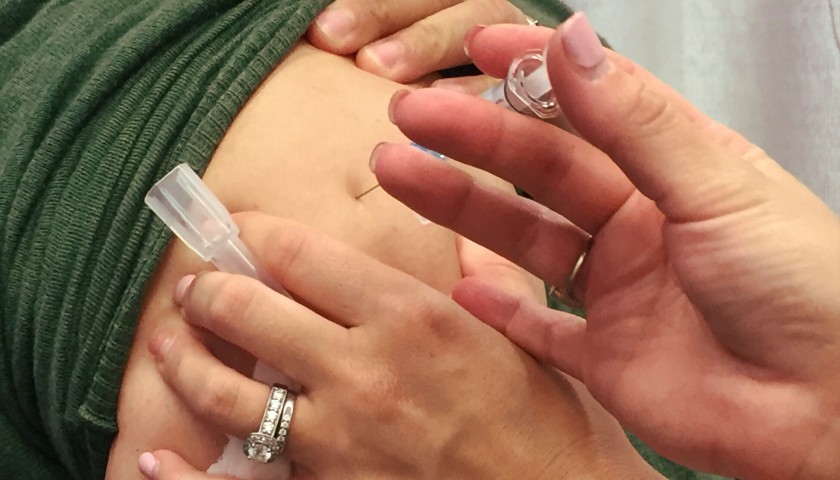by Andrew Trunsky
The United Kingdom became the first country to approve AstraZeneca’s coronavirus vaccine as the nation combats a sharp spike in confirmed cases.
The vaccine, developed in partnership with Oxford University, can be stored at much warmer temperatures than other approved candidates. Its approval followed an official recommendation from Britain’s Medicines and Healthcare Products Regulatory Agency, and the country has already purchased 100 million doses, the company said in its statement.
 “The rollout will start on Jan. 4 and will really accelerate into the first few weeks of next year,” British Health Secretary Matt Hancock told Sky News.
“The rollout will start on Jan. 4 and will really accelerate into the first few weeks of next year,” British Health Secretary Matt Hancock told Sky News.
His comments were echoed by AstraZeneca CEO Pascal Soriot, who told BBC Radio that vaccines will be shipped Wednesday or Thursday and that vaccinations “will start next week and we will get to 1 million – and beyond that – a week, very rapidly.”
“[It’s] an important day for millions of people in the U.K. who will get access to this new vaccine,” Soriot added. “It has been shown to be effective, well-tolerated, simple to administer and is supplied by AstraZeneca at no profit.”
Like Pfizer’s vaccine, which was approved in the U.K. in early December, AstraZeneca’s also requires two doses. But health experts believe that the first dose will be powerful enough to protect against the virus, and have said that they will focus on administering the first dose to as many people as possible.
They added that everybody would receive their second dose within 12 weeks of receiving their first.
The vaccine’s approval follows record daily case counts in the U.K. worsened by a more contagious variant that originated in the country and is spreading across the globe. The strain prompted British Prime Minister Boris Johnson to impose a series of strict lockdown measures through the holidays and led several countries to fully halt travel to and from the country.
Scientists, however, believe that vaccines will be effective against the new strain.
“At the moment, there’s no evidence that the vaccines won’t work against the new variant,” Oxford’s Dr. Andrew Pollard told BBC. “But that is something which we have to look at. We can’t be complacent about this variant or perhaps future variants.”
AstraZeneca’s Phase III trials showed the vaccine to be approximately 70% effective, though the drug maker said that one dosing regimen showed approximately 90% effectiveness.
The vaccine will likely be relied upon throughout the world since it can be stored in refrigerators instead of specialized ultra-cold freezers. The company also said that it plans to produce approximately 3 billion doses by the end of 2021.
“We have a vaccine for the world,” Pollard said on Wednesday.
– – –
Andrew Trunsky is a reporter for the Daily Caller News Foundation.




